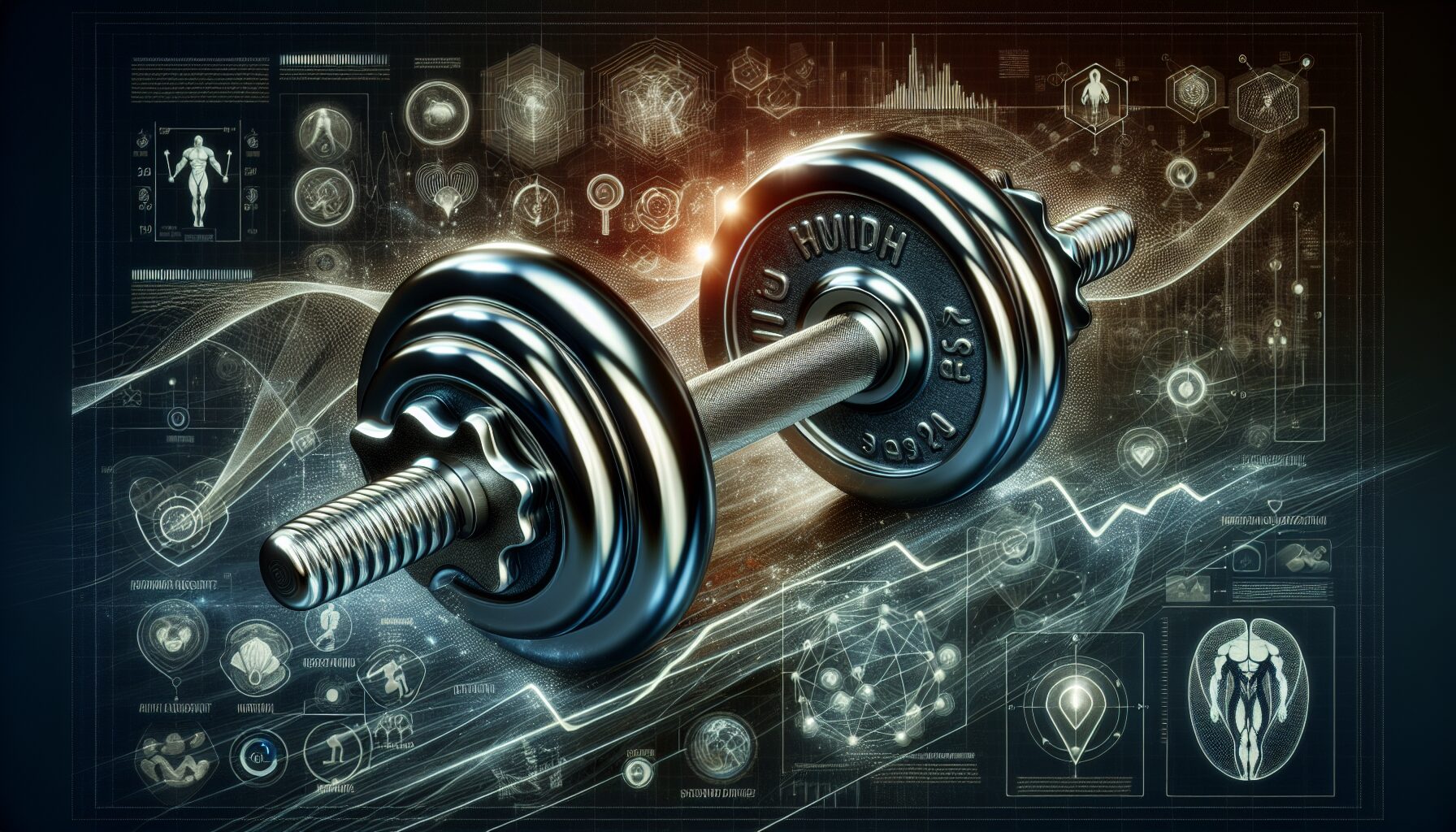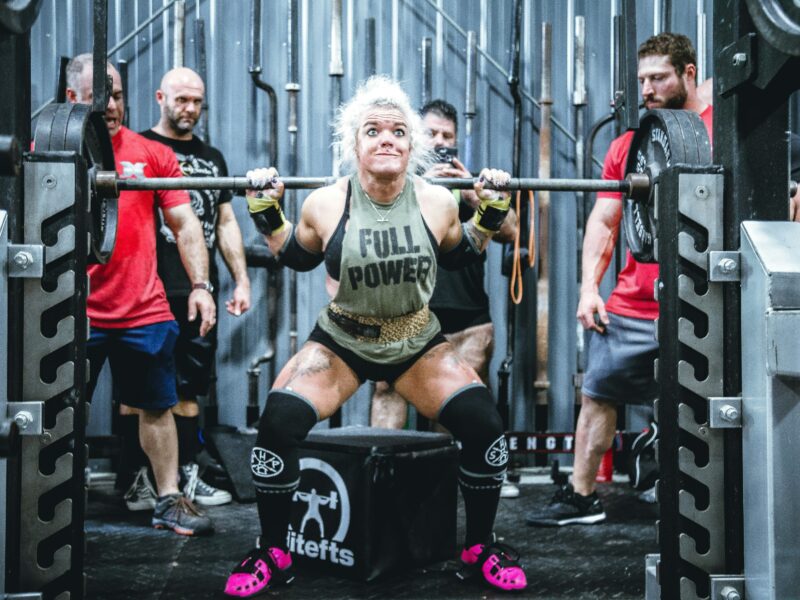Have you ever wondered what factors contribute to the faster growth of muscles? Understanding the mechanisms behind muscle growth is essential for those looking to enhance their strength and hypertrophy. In this article, we will explore the various factors that influence muscle growth, from the importance of proper nutrition and protein intake to the significance of progressive overload and adequate rest periods. By delving into these key elements, you will gain valuable insights into how to optimize your muscle growth and achieve your fitness goals more efficiently and effectively. So, let’s get started and unlock the secrets to faster muscle growth!
Factors That Contribute to Muscle Growth
Muscle growth is a complex process that involves several factors working together to achieve optimal results. By understanding and implementing these factors, you can enhance your muscle growth and achieve your fitness goals more efficiently.
Protein Synthesis
Protein synthesis plays a crucial role in muscle growth. It is the process by which your body builds new proteins, including the ones that make up your muscles. During protein synthesis, amino acids are linked together to form proteins, which then play a vital role in repairing and building muscle tissue.
Hormonal Environment
The hormonal environment in your body also significantly impacts muscle growth. Hormones such as testosterone and growth hormone play a crucial role in stimulating muscle protein synthesis and promoting muscle growth. Therefore, maintaining a healthy hormonal balance is essential for maximizing your muscle growth potential.
Resistance Training
Resistance training is a fundamental component of any muscle-building program. By subjecting your muscles to external resistance, such as weights or resistance bands, you create microscopic damage to the muscle fibers. This damage triggers a response from your body to repair and strengthen the damaged muscle tissue, resulting in muscle growth over time.
Nutrition
Proper nutrition is indispensable for muscle growth. Consuming an adequate amount of calories and macronutrients provides your body with the necessary energy and building blocks for muscle growth. Additionally, nutrient timing and the quality of your food choices can further optimize muscle growth and recovery.
Rest and Recovery
Rest and recovery play a critical role in muscle growth. During rest periods, your body repairs and rebuilds the damaged muscle tissue, leading to increased muscle size and strength. Additionally, sufficient sleep is essential for hormone regulation and overall recovery, enabling you to perform at your best during workouts and promote muscle growth.
Protein Synthesis
Role of Protein Synthesis in Muscle Growth
Protein synthesis is the foundation of muscle growth. When you engage in resistance training, the exercise-induced muscle damage triggers the body to initiate protein synthesis as part of the muscle repair and growth process. This process leads to an increase in muscle protein content, resulting in muscle hypertrophy or growth.
Factors that Enhance Protein Synthesis
Several factors can enhance protein synthesis in your body. Consuming sufficient protein, especially high-quality protein sources, is crucial for providing the necessary amino acids for protein synthesis. Additionally, resistance exercise itself can stimulate protein synthesis, creating a synergistic effect when combined with proper nutrition.
Importance of Essential Amino Acids
Essential amino acids, which cannot be produced by the body and must be obtained through diet, play a critical role in protein synthesis and muscle growth. These amino acids act as the building blocks for muscle proteins, and their availability is essential for maximizing muscle growth. Ensuring an adequate intake of essential amino acids can optimize protein synthesis and support muscle growth.
Optimal Protein Intake for Muscle Growth
Determining the optimal protein intake for muscle growth depends on various factors, such as your body weight, training intensity, and goals. As a general guideline, consuming around 0.6 to 0.9 grams of protein per pound of body weight is recommended for most individuals aiming to maximize muscle growth. However, individual needs may vary, and consulting with a nutrition professional can help determine the ideal protein intake for your specific circumstances.

Hormonal Environment
Role of Hormones in Muscle Growth
Hormones play a pivotal role in regulating muscle growth. Testosterone and growth hormone, in particular, have significant effects on muscle protein synthesis and muscle hypertrophy. These hormones act as powerful anabolic agents, promoting the generation and repair of muscle tissue, leading to increased muscle mass and strength.
Testosterone and Growth Hormone
Testosterone, primarily produced in the testes in males and in smaller amounts in females, is a key hormone for muscle growth. It enhances protein synthesis, increases muscle fiber size, and supports muscle recovery and repair. Growth hormone, secreted by the pituitary gland, further stimulates protein synthesis, promotes muscle cell proliferation, and aids in the metabolism of fats for fuel.
Ways to Naturally Boost Hormone Levels
You can naturally boost your hormone levels to support muscle growth through various lifestyle strategies. Regular resistance training, particularly with heavy weights and compound exercises, has been shown to increase testosterone and growth hormone production. Getting adequate sleep, managing stress levels, and maintaining a healthy body composition can also positively influence hormone levels.
Resistance Training
Importance of Resistance Training for Muscle Growth
Resistance training serves as the primary stimulus for muscle growth. By challenging your muscles with progressively increasing resistance, you create microtears in the muscle fibers. As your body repairs these microtears during the recovery process, it adapts by increasing muscle fiber size and strength, leading to muscle growth.
Progressive Overload
Progressive overload is a key principle in resistance training for muscle growth. It involves gradually increasing the demands placed on your muscles, such as lifting heavier weights, performing additional repetitions, or decreasing rest periods between sets. Progressive overload ensures that your muscles are continually challenged, stimulating further growth and adaptation.
Choosing the Right Exercises
Selecting the right exercises is essential for targeting specific muscle groups and maximizing muscle growth. Compound exercises, such as squats, deadlifts, and bench presses, engage multiple muscle groups simultaneously, allowing for greater overall muscle activation and growth. However, incorporating isolation exercises that target specific muscles can also be beneficial for well-rounded development.
Training Frequency and Volume
Training frequency and volume refer to how often and how much you train your muscles. While consistency is vital, giving your muscles sufficient time to recover between sessions is equally important. Most individuals find optimal results by training each muscle group two to three times per week, with each session consisting of appropriate sets, repetitions, and intensity levels to stimulate muscle growth without overtaxing the body.

Nutrition
Caloric Surplus and Muscle Growth
Maintaining a caloric surplus is essential for muscle growth. Consuming more calories than your body expends provides an energy surplus that can be used for muscle repair and growth. However, it is important to strike a balance, as excessive caloric intake can lead to unwanted fat gain. Monitoring your calorie intake and adjusting it based on your progress and goals is crucial for achieving optimal muscle growth.
Importance of Balanced Macronutrients
In addition to overall calorie intake, consuming balanced macronutrients is crucial for muscle growth. Proteins provide the necessary amino acids for muscle protein synthesis, while carbohydrates provide energy for workouts and replenish muscle glycogen stores. Fats support hormone production and overall health. Balancing these macronutrients in your diet ensures that your body has the necessary resources for muscle growth and recovery.
Timing of Meals
The timing of your meals can also impact muscle growth. Consuming a pre-workout meal rich in carbohydrates and protein can provide the energy and nutrients needed to fuel your workout and support muscle protein synthesis. Additionally, a post-workout meal or snack containing protein and carbohydrates helps initiate muscle recovery and replenish energy stores. Spacing out regular meals and snacks throughout the day can also help maintain a steady supply of nutrients for muscle growth.
The Role of Supplements
Supplements can play a role in supporting muscle growth, but they should not replace a well-rounded diet. Whey protein, creatine, and branched-chain amino acids (BCAAs) are among the most popular muscle-building supplements. Whey protein provides a convenient source of high-quality protein, while creatine supports energy production during intense workouts. BCAAs can enhance muscle protein synthesis and reduce muscle protein breakdown. However, it is essential to consult with a healthcare professional before adding supplements to your regimen.
Rest and Recovery
Muscle Repair and Growth during Rest
Rest and recovery are crucial for muscle repair and growth. When you rest, your body undergoes a process called muscle protein turnover, where damaged proteins are broken down and replaced with newly synthesized proteins. This turnover process, along with the release of anabolic hormones during rest, promotes muscle repair, growth, and adaptation to the training stimulus.
Importance of Adequate Sleep
Adequate sleep is vital for muscle growth and recovery. During sleep, your body produces and releases growth hormone, which is essential for tissue repair and regeneration. Lack of sleep can hinder the production of growth hormone and negatively impact muscle growth. Aim for 7-9 hours of quality sleep per night to optimize your muscle recovery and growth potential.
Active Recovery Techniques
Active recovery techniques, such as light cardio workouts or foam rolling, can help stimulate blood flow and relieve muscle soreness. These techniques aid in the removal of metabolic waste products, improve nutrient and oxygen delivery to the muscles, and accelerate recovery, ultimately promoting muscle growth.
Avoiding Overtraining
Overtraining can impede muscle growth and increase the risk of injury. While challenging workouts are essential, it is crucial to listen to your body’s signals and give yourself adequate rest and recovery time. Overtraining can lead to a decline in performance, decreased muscle growth, and increased susceptibility to illness or injury. Balancing training intensity, volume, and recovery is key to avoiding overtraining and maximizing muscle growth.

Genetic Factors
Influence of Genetics on Muscle Growth
Genetics can influence an individual’s muscle growth potential. Some individuals naturally have a genetic advantage when it comes to building muscle, while others may have to work harder to achieve similar results. Genetic factors such as muscle fiber composition, hormone production, and metabolism can all impact muscle growth to some extent.
Determining Factors of Genetic Potential
While genetics play a role in muscle growth, it is important to note that they are not the sole determinant of individual success. Factors such as commitment, consistency, proper nutrition, and training techniques can still greatly influence muscle growth. By focusing on maximizing your own potential and not comparing yourself to others, you can make significant progress regardless of your genetic predisposition.
Age and Muscle Growth
Effects of Aging on Muscle Growth
As you age, muscle growth can become more challenging. Aging is associated with a natural decline in muscle mass, strength, and hormone levels. This age-related muscle loss, known as sarcopenia, can result in decreased functional capacity and increased risk of age-associated diseases. However, with the right strategies, it is still possible to maximize muscle growth and minimize the effects of aging.
Strategies for Maximizing Muscle Growth with Age
To maximize muscle growth as you age, incorporating resistance training into your routine becomes even more crucial. Prioritizing exercises that target all major muscle groups helps maintain and build muscle mass. Additionally, optimizing protein intake and consuming a well-balanced diet rich in nutrients can support muscle growth. Prioritizing recovery and allowing ample rest between workouts is also essential for older individuals to minimize the risk of injury and maximize muscle adaptation.

Effects of Supplements on Muscle Growth
Popular Muscle-Building Supplements
Numerous supplements are marketed for their potential to enhance muscle growth and performance. Some popular muscle-building supplements include whey protein, creatine, beta-alanine, and branched-chain amino acids (BCAAs). While these supplements may offer certain benefits, it is important to remember that they are not magic pills and should be used in conjunction with proper nutrition and training.
Evidence of Effectiveness
Several supplements have been extensively studied for their impact on muscle growth and performance. Whey protein, for example, has been shown to promote muscle protein synthesis and enhance muscle recovery when used in conjunction with resistance training. Creatine has also been demonstrated to increase muscle strength and power, especially when combined with resistance training. However, individual responses to supplements may vary, and it is essential to consider the quality of research and consult with a healthcare professional or registered dietitian before adding supplements to your regimen.
Potential Risks and Side Effects
While many supplements are generally considered safe when used as directed, it is essential to be aware of potential risks and side effects. Some supplements may interact with medications or have adverse effects on certain individuals. Additionally, supplements can be costly and may not provide significant benefits if your diet and training are not already optimized. Always exercise caution when considering supplements and consult with a healthcare professional to determine if their use is appropriate for you.
Common Mistakes and Factors That Impede Muscle Growth
Inadequate Protein Intake
Many individuals underestimate the importance of adequate protein intake for muscle growth. Consuming insufficient protein can hinder muscle protein synthesis and limit your ability to build and repair muscle tissue. To support muscle growth, aim to consume high-quality protein sources with each meal and consider protein supplements if necessary.
Lack of Progressive Overload
Failing to implement progressive overload in your training can impede muscle growth. The body adapts to stimuli quickly, so continually challenging your muscles with increased resistance is crucial for stimulating further growth. Gradually increasing the weight, repetitions, or intensity of your exercises ensures that you are continually progressing and maximizing muscle growth.
Insufficient Caloric Surplus
Building muscle requires a caloric surplus, meaning you consume more calories than you burn. Without a sufficient surplus, your body may not have the necessary energy and nutrients to support muscle growth. It is important to monitor your calorie intake and adjust it based on your goals to ensure that you are providing your body with enough fuel for muscle growth.
Overtraining and Lack of Rest
Overtraining can inhibit muscle growth and increase the risk of injury. Pushing your body beyond its limits without adequate rest and recovery time can hinder your progress. Properly spacing out training sessions, incorporating rest days, and listening to your body’s signals are crucial for optimizing muscle growth and preventing overtraining.
Neglecting Nutrient Timing
Timing your nutrient intake, especially pre- and post-workout, is important for muscle growth. Consuming a balanced meal or snack containing protein and carbohydrates before a workout provides fuel for your muscles and initiates protein synthesis. Similarly, consuming post-workout nutrients aids in muscle recovery and ensures that your body has the necessary resources for optimal muscle growth. Paying attention to nutrient timing can maximize the effects of your training and promote muscle growth.
In conclusion, several factors contribute to muscle growth, and understanding and implementing these factors can help you achieve optimal results. By prioritizing protein synthesis, creating a favorable hormonal environment, engaging in resistance training, maintaining a balanced and nutritious diet, and prioritizing rest and recovery, you can optimize your muscle growth potential. Remember that everyone’s journey is unique, and finding the strategies that work best for you and your body is key to achieving your muscle growth goals.



